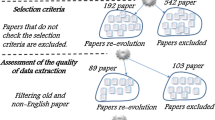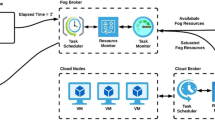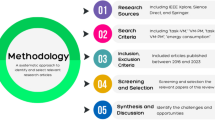Abstract
Nowadays multi-stage computing applications are widespread and they are suitable for being executed in cloud platforms, where virtual resources are provisioned on-demand. By specific rules, virtual resources are automatically scaled out/in according to workloads. In this paper, we model processes of multi-stage computing applications on scalable resources as hybrid flowshop scheduling with deadline constraints. The objective is to minimize the number of scaled-out virtual machines. For the NP-hard problem under study, which has not been explored yet, we propose two greedy methods SNG and SENG. Based on benchmark instances, the performance of the two methods are evaluated and compared. For small-size, medium-size and large-size instances, SENG can averagely save up to 38.99, 33.04 and 29.98 % of VMs, respectively. While SNG can averagely save up to 24.5, 25.38 and 28.87 %, respectively. The CPU time consumed by SENG is averagely one time more than that of SNG.



Similar content being viewed by others
References
Walker E (2008) Benchmarking amazon EC2 for hig-performance scientific computing. In: Proceedings of the Annual Technical Conference, vol 33(5), pp 18–23
Iosup A, Ostermann S, Yigitbasi MN, Prodan R, Fahringer T, Dick HJE (2011) Performance analysis of cloud computing services for many-tasks scientific computing. Parallel Distrib Syst IEEE Trans 22(6):931–945
Khalidi Y (2011) Building a cloud computing platform for new possibilities. Computer 3:29–34
Fan P, Chen Z, Wang J, Zheng Z, Lyu MR (2012) Topology-aware deployment of scientific applications in cloud computing. In: Cloud Computing (CLOUD), 2012 IEEE 5th International Conference on. IEEE, pp 319–326
Gupta A, Kalé LV, Milojicic DS, Faraboschi P, Kaufmann R, March V, Gioachin F, Suen CH, Lee B-S (2012) Exploring the performance and mapping of hpc applications to platforms in the cloud. In: Proceedings of the 21st international symposium on High-Performance Parallel and Distributed Computing, ACM pp 121–122
Cao F, Huang JZ, Liang J (2014) Trend analysis of categorical data streams with a concept change method. Inform Sci 276:160–173
Wang X-Z, Aamir Raza Ashfaq R, Fu A-M (2015) Fuzziness based sample categorization for classifier performance improvement. J Intell Fuzzy Syst 1–12 (Preprint)
Wang X-Z, He Y-L, Dong L-C, Zhao H-Y (2011) Particle swarm optimization for determining fuzzy measures from data. Inform Sci 181(19):4230–4252
He Y-L, Wang X-Z, Huang JZ (2016) Fuzzy nonlinear regression analysis using a random weight network. Inform Sci. doi:10.1016/j.ins.2016.01.037
Wang XZ (2015) Uncertainty in learning from big data-editorial. J Intell Fuzzy Syst 28(5):2329–2330
Naderi B, Gohari S, Yazdani M (2014) Hybrid flexible flowshop problems: models and solution methods. Appl Math Modell 38(24):5767–5780
Gupta JND (1988) Two-stage, hybrid flowshop scheduling problem. J Oper Res Soc 39(4):359–364
Naderi B, Ruiz R (2010) The distributed permutation flowshop scheduling problem. Comput Oper Res 37(4):754–768
Behnamian J, Fatemi Ghomi SMT (2011) Hybrid flowshop scheduling with machine and resource-dependent processing times. Appl Math Modell 35(3):1107–1123
Pan Q-K, Wang L, Li J-Q, Duan J-H (2014) A novel discrete artificial bee colony algorithm for the hybrid flowshop scheduling problem with makespan minimisation. Omega 45:42–56
Pan Q-K, Dong Y (2014) An improved migrating birds optimisation for a hybrid flowshop scheduling with total flowtime minimisation. Inform Sci 277:643–655
De Assunçao MD, Di Costanzo A, Buyya R (2009) Evaluating the cost-benefit of using cloud computing to extend the capacity of clusters. In: Proceedings of the 18th ACM international symposium on High performance distributed computing. ACM, pp 141–150
Chien-Tung L, Chang C-W, Li J-S (2015) Vm scaling based on hurst exponent and markov transition with empirical cloud data. J Syst Softw 99:199–207
Malawski M, Juve G, Deelman E, Nabrzyski J (2015) Algorithms for cost-and deadline-constrained provisioning for scientific workflow ensembles in iaas clouds. Future Gener Comput Syst 48:1–18
Mao M, Humphrey M (2011) Auto-scaling to minimize cost and meet application deadlines in cloud workflows. In: Proceedings of 2011 International Conference for High Performance Computing, Networking, Storage and Analysis. ACM, pp 49
Acknowledgments
This work is sponsored by the National Natural Science Foundation of China (Grant No. 71401079, Grant No. 61572127 and Grant No. 61472192), and NUPTSF (Grant No. NY214016).
Author information
Authors and Affiliations
Corresponding author
Rights and permissions
About this article
Cite this article
Zhu, J., Li, X. Scheduling for multi-stage applications with scalable virtual resources in cloud computing. Int. J. Mach. Learn. & Cyber. 8, 1633–1641 (2017). https://doi.org/10.1007/s13042-016-0533-z
Received:
Accepted:
Published:
Issue Date:
DOI: https://doi.org/10.1007/s13042-016-0533-z




